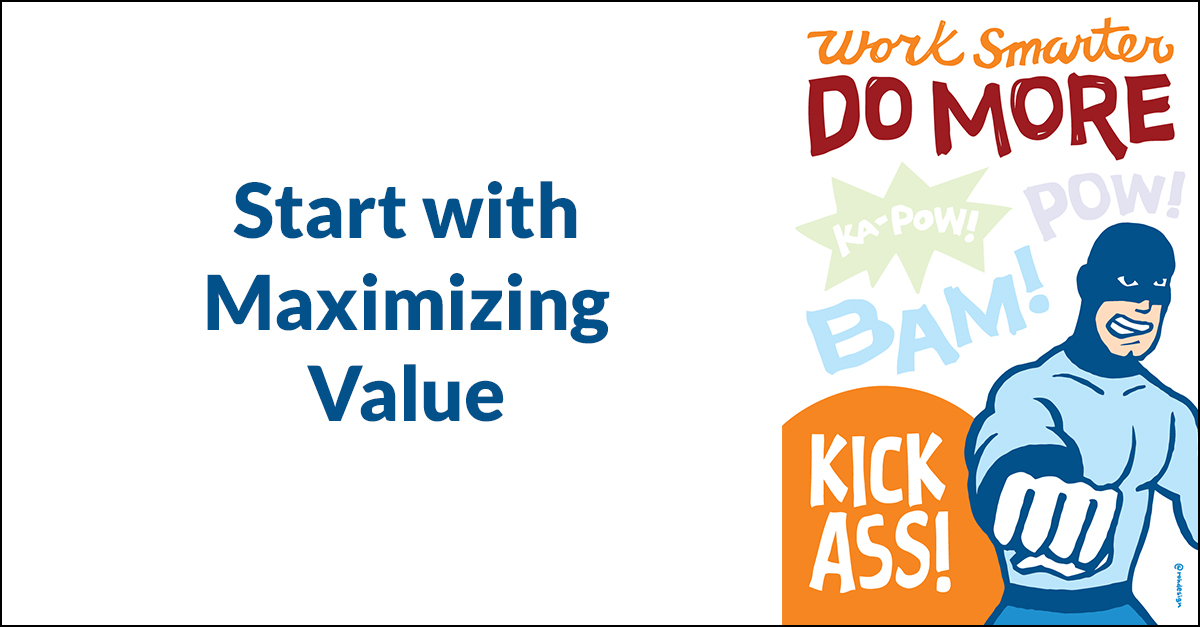
I ran across a post by David Marlow on LinkedIn about “the efficiency trap”
and how focusing on efficiency leads to bad decisions.
At first it gave me pause; we talk about efficiency a lot. The consulting we do and the custom software systems we build are often centered around helping clients work smarter. While efficiency is often the outcome of what we do, it’s not the only
driving force.
Simply being more efficient doesn’t typically solve our clients’ problems or meet their goals. Cutting essential steps from a process simply to make it faster doesn’t benefit the business or its customers. And resistance to adding steps
to a process that may improve outcomes is futile.
Only by cutting steps that are wasteful and/or adding steps that add value can you be more efficient. Efficiencies are created by maximizing value and eliminating waste. That requires considering factors other than speed—for example, quality and
customer satisfaction—when reworking your processes.
Efficiency Vs. Effectiveness
The ideas in David’s post reminded me of another video we watched as a team as we were transitioning to scrum many moons ago:
Scrum methodologies aren’t efficient, but they sure are effective. The line at the end of the video has stuck with me:
It’s not about doing the thing right. It’s about doing the right thing.
Process improvement isn’t just about doing things faster. It’s about working smarter (#FRCV8).
And when you focus on adding value and removing waste, you end up with more efficient processes, better decisions, and improved customer experiences.
What do you think? It’s a new (for me) way to talk about a concept we’ve been implementing
for years.
I’d love to hear your thoughts!